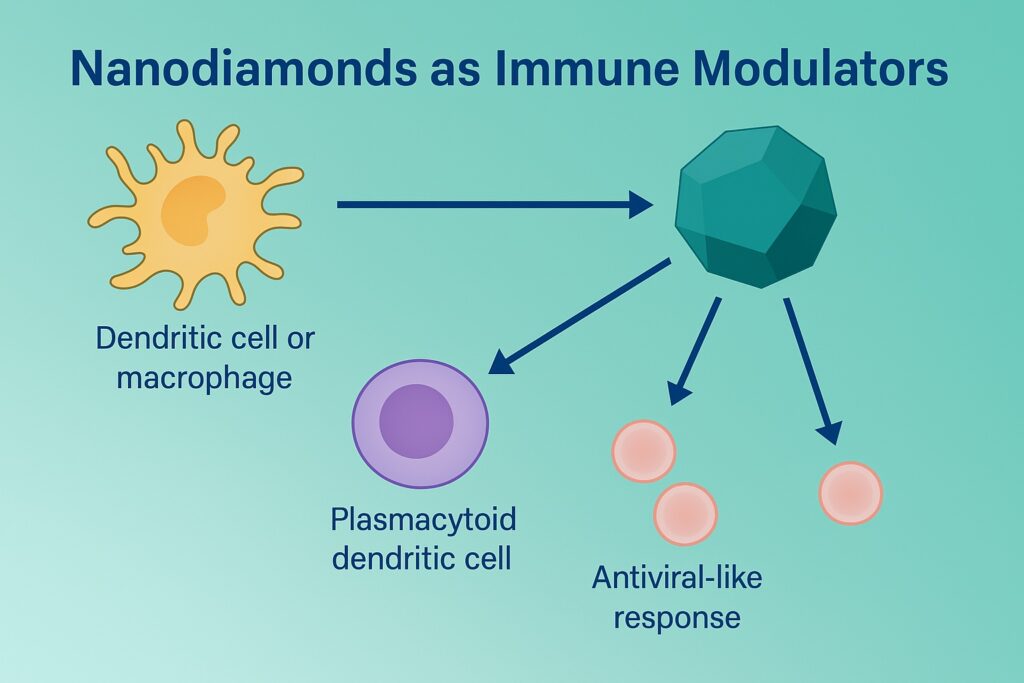Scientists Unlock New Role for Nanodiamonds in Activating the Immune System
A team of international researchers, led by scientists from Karolinska Institutet in Sweden in collaboration with CATRIN at Palacký University Olomouc, has made an exciting discovery: nanodiamonds—tiny particles made of carbon—can help activate the immune system in a way that mimics the body’s natural response to viruses. The results, recently published in the leading scientific journal ACS Nano, show that nanodiamonds may one day be used in next-generation cancer vaccines or as carriers for targeted drug delivery.
“These nanoparticles are taken up by immune cells in the body, especially dendritic cells and macrophages,” explains Tomáš Malina, the first author of the study and a researcher at CATRIN and VSB – Technical University of Ostrava. “Once inside, they trigger a strong antiviral-like response. I joined the project during my postdoctoral fellowship at Karolinska Institutet. Through our collective effort, we were able to produce novel and exciting results.”
The research, supervised by Professor Bengt Fadeel and supported by the Swedish Research Council, used a mix of cutting-edge tools—from single-cell analysis to computer simulations—to understand how nanodiamonds interact with primary human immune cells.

One of the most surprising findings was that nanodiamonds can activate specific receptors inside immune cells that normally detect viruses. These tiny particles seem to “trick” the immune system into thinking it’s under attack—without causing harm to the cells themselves.
The study also involved scientists from VSB – Technical University of Ostrava, KTH Royal Institute of Technology, the University of Padua, and the La Jolla Institute for Immunology, and was supported through an ongoing collaboration with CATRIN, where part of the nanodiamond characterization as well as computational modeling was performed.
“This research shows that nanodiamonds are more than just passive drug carriers,” says Professor Bengt Fadeel. “They can actively influence how the immune system behaves, which could have major benefits in medicine. Moreover, we found that they were perfectly safe.”
Read the full study here: https://doi.org/10.1021/acsnano.4c18108

